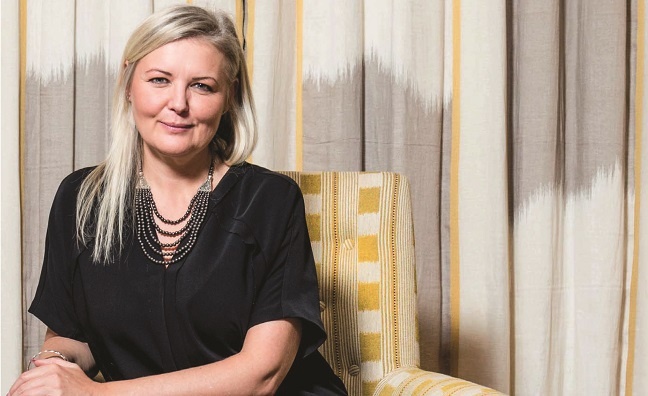Former BASCA CEO Vick Bain has called for further research and data from the music industry, following her report detailing the extent of gender inequality.
In the latest issue of Music Week, we exclusively reveal key findings from Counting The Music Industry: The Gender Gap. It is based on analysis of more than 100 music publishers and 200 labels.
According to the report, just 14.18% of the 12,040 writers represented by UK publishers are women, while female artists make up 19.69% of the rosters of acts signed to labels.
“I’m hoping that it’s going to be a wake-up call,” Bain told Music Week.
Bain now works as a freelance music industry consultant and is director of the board of Parents & Carers in Performing Arts (PiPA). She has sat on the UK Music board, the UK Music Research Group and the UK Music Rights Committee, as well as the UK Music Diversity Taskforce.
In the wide-ranging report, Bain also addresses the gender pay gap in the music business.
“What would be really good would be to have more research on the pay gap for musicians in the industry,” she said. “Are women just not being paid as much as their male counterparts, and is that stopping them from continuing on with their careers as a musician? I suspect that’s what’s happening, but there’s been no UK research into that right now.”
Doing research was a really good start, because 10 years ago there was just no data
Vick Bain
Bain spent 13 years at BASCA. She was inducted on to the Music Week Women In Music Awards Roll Of Honour in 2017. She also appeared on BBC Radio 4 Woman’s Hour Music Industry Powerlist.
During her spell as BASCA CEO from 2012 to 2018, Bain worked to support women in the publishing and songwriting community with various measures.
“Talking about the issue for starters,” she said. “Also doing research was a really good start, because 10 years ago there was just no data. This research is a benchmark, an audit of the music industry – if you don’t know where you are, how do you know where you’re going?
“[At BASCA] we encouraged female songwriters and composers to stand for committees and get involved in the board. Those women became advocates and role models for other women in the organisation. It was about creating a welcoming environment, and that really did help.”
PRS For Music has said 17% of members are female compared to 13% in 2011. As the industry digests the data in the new report, Bain has urged collecting societies to go beyond membership figures and reveal the percentage of income going to female members.
“I would love to do some work with the collecting societies on that,” she added.
The report will be published online to encourage the industry to pursue key recommendations.
To read the full interview and more data from the report, pick up the latest issue – or subscribers can click here.
To subscribe and never miss a big industry story, click here.








